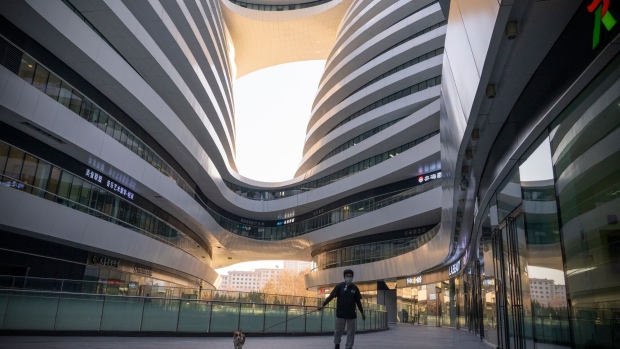Jul 3, 2024
China Floats Private Creditors Role in Early Debt Rework Talks
, Bloomberg News

(Bloomberg) -- China has proposed that private creditors take part in the early stages of debt restructuring talks for developing economies to speed up complex negotiations that are often mired in disagreements.
China’s Vice Finance Minister Liao Min made the suggestion during an annual event organized by the group of bilateral creditors under the Paris Club, according to people who participated in the so-called Paris Forum held in the French capital last week.
During the event, Liao took part in a ministerial roundtable focused on sovereign debt challenges for 2024, which also included French Finance Minister Bruno Le Maire and International Monetary Fund First Deputy Managing Director Gita Gopinath, said two of the people, who asked not to be named because the event was private. The Chinese official didn’t elaborate on how private creditors could be involved earlier in debt talks, they said.
The Ministry of Finance didn’t immediately respond to a request for comment.
As low-income nations face mounting pressure to renegotiate their debt — with their finances worsening further during the coronavirus pandemic — progress toward actual relief has been slow, partly due to differing views between Western countries that have traditionally guided sovereign debt restructurings, and China.
China plays a key role in the negotiations as it’s become the world’s biggest bilateral creditor to emerging nations since announcing its Belt and Road infrastructure construction initiative in 2013.
Research from Boston University’s Global Development Policy Center shows that China Development Bank and Export-Import Bank of China, the nation’s two biggest international development lenders, committed almost $500 billion in funding to 100 countries between 2008 and 2021.
Recent debt revamps, in which loans owed to bilateral creditors were negotiated and restructured before those owed to private lenders, underscored some of the drawbacks that are slowing financial relief to crisis-hit nations.
Zambia defaulted on its debt at the end of 2020 but only formalized an agreement with bilateral creditors in October last year. It took six more months to reach a deal with private bondholders. Sri Lanka defaulted more than two years ago, and it is now negotiating with bondholders after formalizing a deal with bilateral creditors last month.
The world’s 20 largest economies agreed four years ago on a platform called the Common Framework to smooth the processes of restructuring loans that governments could no longer afford to service or repay.
Countries in financial distress first have to negotiate a plan with the IMF to bring their borrowing back on a sustainable path, mainly by agreeing to reduce spending and increase revenue collection in addition to securing debt relief.
After such a program is agreed, the governments need to hammer out a deal with creditor nations. They are then required to seek a comparable agreement with private creditors, such as bondholders and commercial banks, constituting a multi-stage process leading to delays.
--With assistance from Jing Zhao and Fran Wang.
©2024 Bloomberg L.P.





